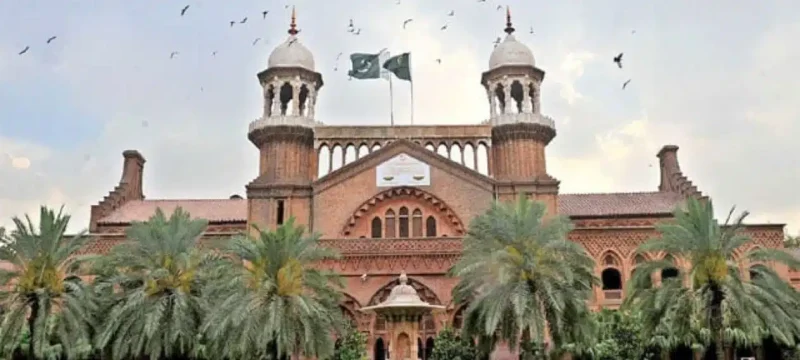In Islamabad, the Lahore High Court (LHC) has rejected an unusual writ petition brought forth by a self-proclaimed herbalist who sought permission to publicly consume poison at Lahore’s Mochi Darwaza. His intention was to demonstrate the extraordinary healing capabilities of one of his medicines, claiming it could cure cancer patients.
Justice Raheel Kamran, presiding over a single-member bench of the LHC, delivered a comprehensive seven-page verdict on October 12. The judgment delved into the topics of euthanasia, legal aspects related to drug manufacturing and distribution in Pakistan, and the right to die with dignity.
The verdict acknowledged that some countries, including India, have accepted euthanasia in recognition of an individual’s fundamental right to die with dignity. However, the judgment emphasized that Islam is the state religion of Pakistan, as stated in Article 2 of the Constitution.
Also Read: Nawaz Reports Ongoing ‘Chest Pain’ in LHC Submission
The judgment refrained from delving into the question of whether euthanasia is tenable in Pakistan based on the Constitution’s provisions, considering the petitioner was not a terminally ill patient. The court noted that the request for permission was not to alleviate great pain and suffering but rather for a life-endangering experiment aimed at creating a public spectacle. Consequently, no directive for granting such permission was justified by law.
The LHC expressed concerns that granting such permission might disrupt public order and encourage others to engage in unlawful practices.
However, the verdict pointed out that suicide attempts in Pakistan were decriminalized on December 28, 2022, when the offense under Section 325 of the Pakistan Penal Code, 1860, was removed through the Criminal Laws (Amendment) Act, 2022.
The judgment also emphasized that permitting the petitioner to publicly consume any substance not registered with the Drug Regulatory Authority of Pakistan (DRAP) would not only contravene the law but also constitute criminal offenses.
The court cited the DRAP Act, 2012, which prohibits various actions related to therapeutic goods, drugs, alternative medicine, and medical devices. The petitioner’s request for public representation of his act of substance consumption, believed to cure cancer patients, was considered likely to violate these prohibitions, potentially leading to anarchy in the realm of drugs.
The verdict also referred to the Poisons Act, 1919, which regulates the importation, possession, and sale of poisons. Section 4 of the legislation empowers the provincial government to regulate poison possession and prescribes penalties for violations. Section 5 of the act presumes that any substance specified as poison in a rule is deemed to be a poison for legal purposes. Additionally, the storage, use in drugs, and labeling of poisonous substances are governed by the Drugs Act, 1976, and rule 20 of the Punjab Drug Rules, 2007.
The court concluded that granting the requested direction might undermine the role and authority of laws. The petition, in the court’s view, appeared to be more of a publicity stunt under the guise of public interest and was thus dismissed outright.





